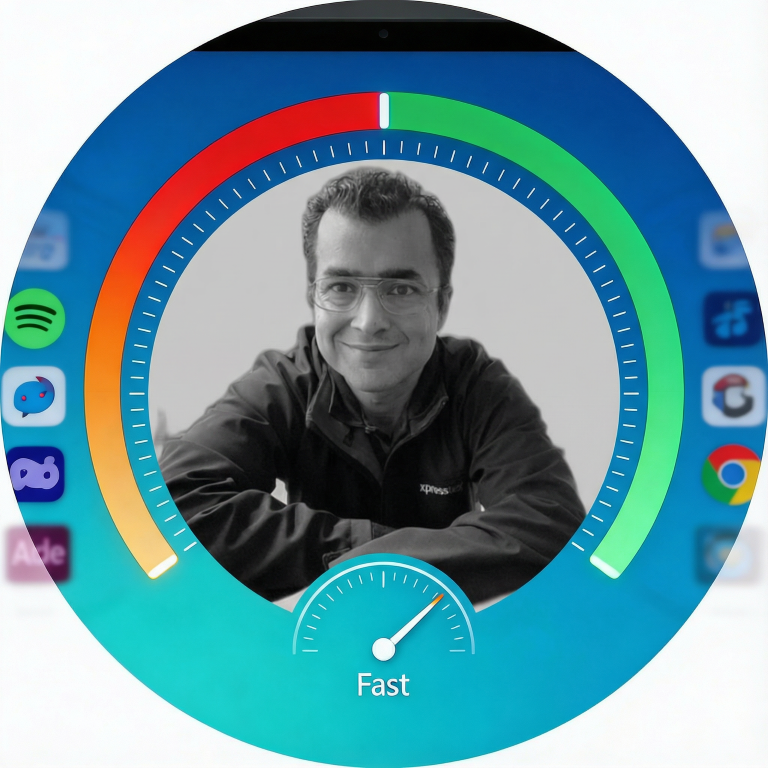
Why Medical Clinics in Melbourne Need IT Support: Key Reasons Explained
The Medical Sector in Melbourne undergoing a significant transformation.
Medical clinics in Melbourne, like those elsewhere, are increasingly reliant on technology to enhance patient care, streamline operations, and maintain compliance with regulatory standards.
As a result, the demand for robust IT support has never been greater. This article delves into the critical reasons why medical clinics in Melbourne must prioritize IT support to thrive in this evolving landscape.
Enhancing Patient Care Through Technology
Technology plays a pivotal role in improving patient care.
From Medical Health Records (MHR) to telehealth, IT support is essential for the effective implementation and management of these systems.

Medical Health Records (MHR)
Medical Health Records have revolutionised how patient information is stored, accessed, and shared.
IT support ensures that these systems are running smoothly, allowing healthcare providers to access patient data quickly and efficiently.
This immediacy can lead to better diagnosis and treatment, ultimately enhancing patient outcomes.
Moreover, IT support teams can help clinics integrate MHR systems with other software solutions, such as billing and appointment scheduling.
This integration reduces administrative burdens and minimizes the risk of errors, further improving the patient experience.
Additionally, the ability to analyze aggregated data from MHRs enables healthcare providers to identify trends and patterns in patient care, leading to more informed decision-making and personalized treatment plans.
As healthcare continues to evolve, the adaptability of MHR systems supported by robust IT infrastructure will be crucial in meeting the diverse needs of patients.
Telehealth Services In Melbourne
The rise of telehealth has transformed the way patients interact with healthcare providers.
IT support is crucial for setting up and maintaining secure telehealth platforms.
These platforms must not only be user-friendly but also comply with privacy regulations to protect sensitive patient information.
Reliable IT support ensures that telemedicine services are consistently available, minimizing downtime and technical issues that could disrupt patient care.
This reliability is particularly important in times of crisis, such as during a pandemic, when patients may prefer or need to consult their healthcare providers remotely.
Furthermore, telehealth opens doors to specialized care that may not be available locally, allowing patients to connect with experts across the globe without the need for travel.
This accessibility can significantly enhance the quality of care, especially for those in rural or underserved areas, ensuring that all patients have the opportunity to receive timely and effective treatment.
Streamlining Operations and Efficiency For Medical Practices In Melbourne
Operational efficiency is vital for any medical clinic.
Effective IT support can help streamline processes, reduce costs, and improve overall productivity.

Appointment Scheduling Systems
Modern appointment scheduling systems are essential for managing patient flow and optimizing clinic resources.
IT support can assist clinics in selecting, implementing, and maintaining these systems, ensuring they function correctly and meet the clinic's specific needs.
With a well-managed scheduling system, clinics can reduce wait times, minimize no-shows, and enhance the overall patient experience.
IT support also helps in training staff to use these systems effectively, further contributing to operational efficiency.
Moreover, advanced scheduling systems can integrate with telehealth platforms, allowing clinics to offer virtual appointments seamlessly.
This flexibility not only caters to patients' preferences but also expands the clinic's reach, accommodating those who may have difficulty attending in-person visits due to distance or health concerns.
Data Management and Security For Medical Practices
In the healthcare sector, data management is critical.
Clinics handle vast amounts of sensitive patient information that must be stored securely and accessed efficiently.
IT support teams can implement robust data management solutions that ensure data integrity and security.
Additionally, IT support is essential for establishing cybersecurity measures.
With the increasing prevalence of cyber threats, medical clinics must protect their systems and data from potential breaches.
Regular updates and monitoring by IT professionals can help mitigate risks and safeguard patient information.
Furthermore, compliance with regulations such as RACGP is paramount; IT support can facilitate training sessions for staff on best practices for data handling and privacy protocols.
This not only fosters a culture of security within the clinic but also builds trust with patients, knowing their information is being handled with the utmost care and professionalism.
Compliance with Regulatory Standards In Medical Practices
Medical clinics must adhere to various regulations and standards, including the RACGP and Australian privacy laws.
Compliance is not only a legal requirement but also a critical aspect of maintaining patient trust.
The implications of non-compliance can be severe, ranging from hefty fines to loss of licensure, which can jeopardize the clinic’s ability to operate effectively.
Understanding Regulatory Requirements For Medical Practices
IT support teams are well-versed in the regulatory landscape and can help clinics navigate the complexities of compliance.
They can provide guidance on best practices for data handling, storage, and sharing, ensuring that clinics meet legal obligations.
This includes implementing secure medical health record (MHR) systems that encrypt patient data and restrict access to authorized personnel only.
Moreover, IT support can assist in conducting regular audits to assess compliance levels.
These audits help identify potential vulnerabilities and areas for improvement, allowing clinics to address issues proactively.
By regularly reviewing policies and procedures, clinics can stay ahead of changes in regulations and adapt their practices accordingly, thus minimizing risk and enhancing their overall operational integrity.
Training and Education For Practice Manager
Compliance is not solely the responsibility of IT; all staff members must understand their roles in maintaining regulatory standards.
IT support can facilitate training sessions to educate employees about compliance requirements and best practices.
These sessions can cover a range of topics, from recognizing phishing attempts that could compromise patient data to understanding the importance of patient consent in data sharing.
By fostering a culture of compliance within the clinic, IT support helps ensure that everyone is aware of their responsibilities.
This collective effort is essential for maintaining patient trust and avoiding legal repercussions.
Furthermore, ongoing education can empower staff to take ownership of compliance, encouraging them to report potential issues or suggest improvements, which ultimately contributes to a safer and more secure healthcare environment.
Cost-Effectiveness and Resource Management
Investing in IT support may seem like an additional expense, but it can lead to significant cost savings in the long run.
Efficient IT management can help clinics optimize resource allocation and reduce operational costs.

Reducing Downtime For Medical Practices
One of the most significant costs associated with IT issues is downtime.
When systems go down, clinics can lose valuable time and revenue.
IT support teams are equipped to address technical issues promptly, minimizing downtime and its associated costs.
Furthermore, proactive maintenance and monitoring can prevent many IT problems from arising in the first place.
By investing in IT support, clinics can ensure that their systems remain operational and efficient, ultimately saving money.
Maximizing Technology Investments in Medical IT
Medical clinics often invest heavily in technology, from EHR systems to diagnostic equipment.
IT support helps clinics maximize these investments by ensuring that systems are utilized to their full potential.
IT professionals can provide insights into how to leverage existing technology more effectively, whether through training staff, integrating systems, or optimizing workflows.
This approach not only enhances productivity but also extends the lifespan of technological investments.
Improving Communication and Collaboration
Effective communication is essential in a medical clinic, both among staff and with patients.
IT support can enhance communication systems, leading to improved collaboration and patient engagement.
Internal Communication Systems
IT support can implement and manage internal communication tools, such as secure messaging platforms and collaboration software.
These tools facilitate seamless communication among healthcare providers, enabling them to share information and coordinate care more effectively.
Improved internal communication can lead to better patient outcomes, as healthcare providers can quickly share insights and collaborate on treatment plans.
IT support ensures that these systems are secure and compliant with regulations, protecting patient information while enhancing teamwork.
Patient Engagement Tools
Engaging patients in their care is crucial for improving health outcomes.
IT support can assist clinics in implementing patient engagement tools, such as patient portals and mobile applications.
These tools allow patients to access their health information, schedule appointments, and communicate with their healthcare providers easily.
By enhancing patient engagement, clinics can foster stronger relationships with their patients, leading to improved satisfaction and adherence to treatment plans.
Future-Proofing the Clinic
As technology continues to evolve, medical clinics must stay ahead of the curve to remain competitive.
IT support plays a vital role in future-proofing clinics against emerging trends and challenges.
Adopting New Technologies
The healthcare landscape is constantly changing, with new technologies emerging regularly.
IT support can help clinics assess and adopt innovative solutions that enhance patient care and operational efficiency.
From artificial intelligence in diagnostics to advanced data analytics, staying informed about technological advancements is essential for clinics aiming to provide the best care possible.
IT support teams can evaluate the potential benefits of new technologies and guide clinics in making informed decisions.
Scalability and Growth
As a clinic grows, its IT needs will evolve.
IT support can help clinics develop scalable solutions that accommodate growth without compromising performance.
This adaptability is crucial for clinics looking to expand their services or patient base.
By investing in scalable IT solutions, clinics can ensure that their systems can handle increased demand, allowing them to focus on providing quality care rather than dealing with technical constraints.
In summary, the need for IT support in medical clinics in Melbourne is more pressing than ever.
From enhancing patient care and streamlining operations to ensuring compliance and future-proofing the clinic, the benefits of robust IT support are undeniable.
As the healthcare landscape continues to evolve, clinics that prioritize IT support will be better positioned to thrive in this dynamic environment.
Ultimately, investing in IT support is not just about keeping systems running; it is about creating a foundation for success in the ever-changing world of healthcare.
By recognising the importance of technology and its role in patient care, medical clinics can enhance their services and maintain a competitive edge in Melbourne's healthcare market.



